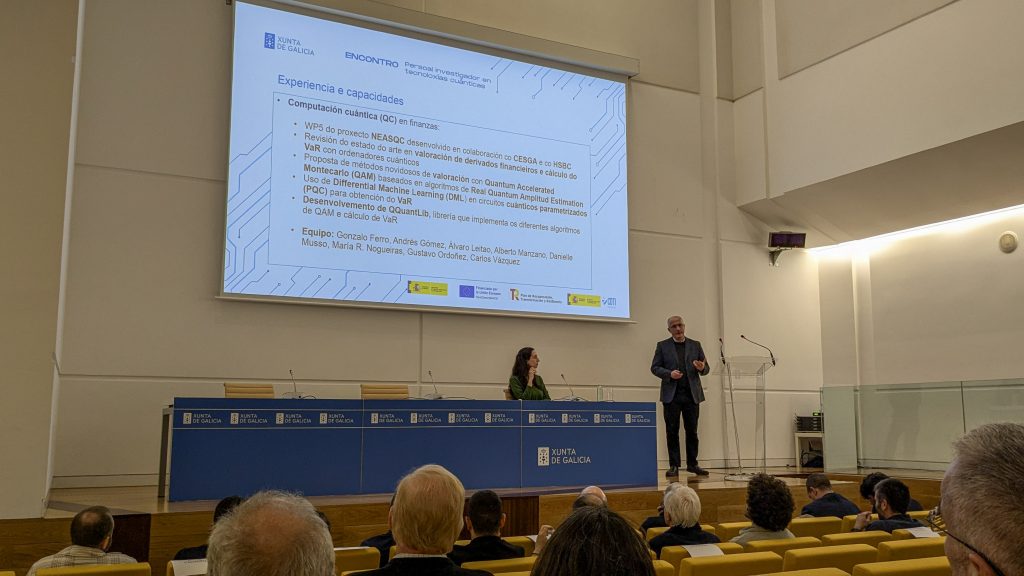
Researchers from CITIC participate in the First Meeting of Researchers in Quantum Technologies
Researchers from CITIC at UDC participated last week in the First Meeting of Researchers in Quantum Technologies, organized by the Galician Innovation Agency (GAIN). The event brought together specialists from all over Galicia to foster collaboration and promote the development of these emerging technologies. Additionally, the Quantum Technologies Capability Map of Galicia was presented, a strategic tool that reflects the scientific and technical potential of the Galician community in this field.
As part of the European project NEASQC (NExt ApplicationS of Quantum Computing), UDC researchers were able to investigate and develop a new generation of quantum applications that can take advantage of the capabilities of current noisy intermediate-scale quantum (NISQ) computers in the near future. This project brings together academic experts and industrial users to address a wide range of use cases, from breast cancer detection and CO2 capture to smart energy management and probabilistic risk assessment. It also aims to consolidate an active European community around quantum computing by developing open-source tools and libraries that allow new industrial users to experiment and share results.
Diego Andrade Canosa, a researcher from the High-Performance Computing group, highlighted the development of The NEASQC Benchmark Suite (TNBS), a comprehensive benchmarking suite designed to objectively evaluate the capabilities of quantum computers and explore practical applications of quantum computing in the short term. This work advances the understanding of the real capabilities of current quantum technologies and enhances their use in industrial applications.
Carlos Vázquez Cendón, from the M2NICA research group, explained the progress made in the collaboration between CITIC, CESGA, and HSBC bank. In his presentation, he addressed the use of quantum computing in the valuation of financial derivatives, highlighting techniques such as Quantum Accelerated Monte Carlo (QAMC). He also presented the QQuantLib library, developed within the NEASQC project to implement QAMC algorithms, with the participation of researchers Alberto Manzano and Álvaro Leitao.
Finally, Eduardo Mosqueira Rey, from the LIDIA research group at UDC, discussed the potential of quantum computing properties for representing and managing uncertainty in artificial intelligence systems. Mosqueira highlighted the creation of the Quantum Rule-Based Systems (QRBS) library, which allows symbolic artificial intelligence systems to run on quantum computers. An example of its applications is determining the stage of breast cancer by analyzing key aspects such as tumor size, lymph node involvement, and the presence of metastases.
These three libraries (TNBS, QQuantLib, and QRBS) are part of the tools developed within the NEASQC project, which aims to accelerate the adoption and practical application of quantum computing in industrial and scientific contexts.





